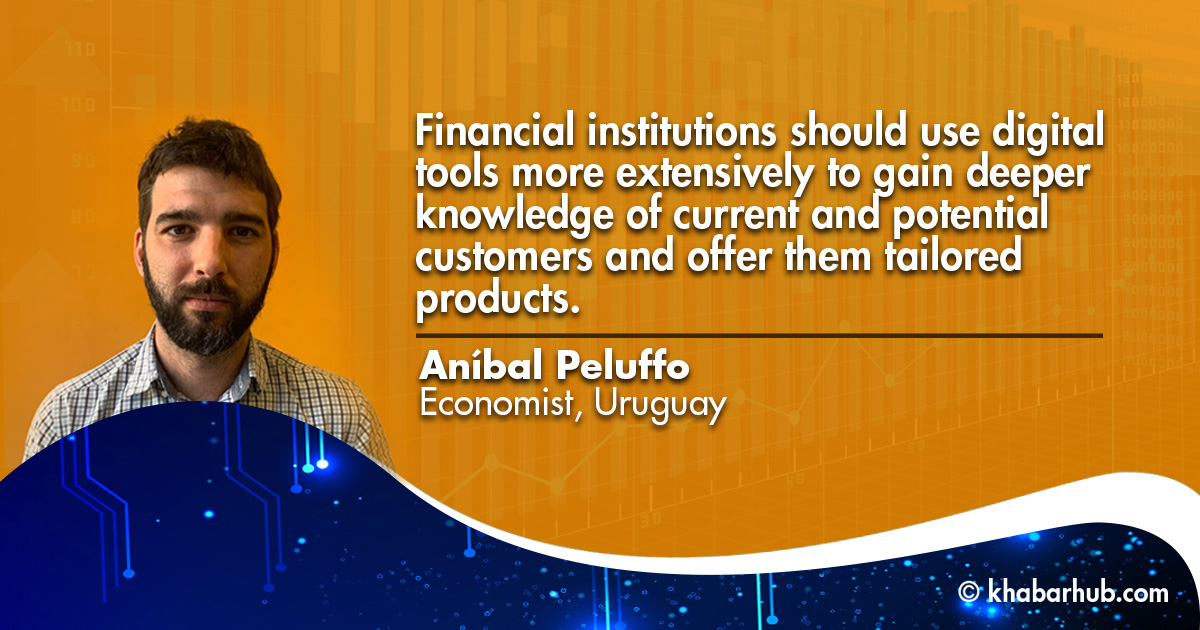In developing countries, it can be a challenge to convince people that finance is not a bad word, and that the financial system is not necessarily a perverse mechanism that serves only the rich and sends the national wealth abroad.
The key questions are what type of financial system do we want, and what can be done to achieve it.
More inclusive and accessible financial systems increase economic growth, reduce poverty and inequality, and boost social inclusion.
Moreover, governments can play a critical role in helping to achieve those development goals by actively implementing financial-inclusion policies.
For a long time, information asymmetries and financial institutions’ lack of knowledge about potential customers and their needs excluded large portions of developing countries’ populations from the financial system.
But policies that address those market failures will, in the long term, generate positive economic spillovers and improve financial stability.
Uruguay’s recent progress in increasing financial inclusion proved vital in helping policymakers address the economic crisis caused by the COVID-19 pandemic.
Today, financial technology (fintech) firms are using digital tools to adapt financial services to the needs of individuals and small firms traditionally excluded from the system.
New technologies can generate credit scores using alternative data – thereby expanding access to loans and other financial products – create balance sheets for small businesses in as little as 40 minutes to facilitate their access to microcredits, and enable pay-as-you-go micropayments systems to handle large and specific expenses.
Microfinance institutions (MFIs) and cooperatives are perhaps best suited to lead financial-inclusion efforts, because they already have experience working with excluded populations.
In Uruguay, for example, second-tier financial institutions fund programs to provide loans through MFIs and cooperatives to small communities. But such schemes are not enough, and their success depends heavily on the local context.
Governments should therefore support fintechs and MFIs with policies to encourage the development of less profitable financial services that emphasize social goals.
Policymakers should also explore ways to improve the interoperability between these new players and traditional financial services in the light of these objectives.
For example, the center-left Frente Amplio (Broad Front) coalition that governed Uruguay from 2005 until earlier this year introduced a financial-inclusion law in 2014.
The program significantly increased access to financial services, though much remains to be done to ensure their effective use.
Governments should therefore provide subsidies or other enabling conditions to encourage the development of less profitable financial services with a high social return.
Unfortunately, Uruguay’s new center-right administration has decided to dismantle the law’s central elements – against the recommendations of many international organizations, which regard financial inclusion as a development goal.
Even so, Uruguay’s recent progress in increasing financial inclusion proved vital in helping policymakers address the economic crisis caused by the COVID-19 pandemic.
State income support for citizens, and instruments to provide liquidity to firms through the financial system, were much more effective as a result of the previous government’s policy (although this assistance was relatively small in cross-country terms).
But expanding access to financial services does not necessarily bolster social inclusion, as the recent experience of Uruguay and other South American countries shows.
Although it has increased financial inclusion in the region, public policy has not removed other long-standing dimensions of marginalization.
The financial-inclusion curve shifted upward, but did not change shape: the most excluded population groups are the same as in the past.
It is crucial that such groups receive the advice and financial education they need to use quality financial services, because wrong decisions in such matters have terrible results.
The most recent financial survey of Uruguyan households, conducted in 2014, revealed differences in financial-services use and access between social groups.
Drawing on the survey data, Graciela Sanroman and Guillermo Santos of the Universidad de la Republica have shown that higher-income households are more likely to have credit cards and bank accounts; they also found differences related to race, employment conditions, and gender.
The structural changes in developing countries’ financial systems that are needed to boost social inclusion will require bolder policies, more ambitious targets, and creative solutions.
Furthermore, the household survey showed that only around 4% of small firms – 1% in the informal sector and 7% in the formal sector – have bank credit.
Fifty-five percent never ask for credit, and more than 30% regard credit as too expensive or inaccessible. Only 1% of small firms had credit with an MFI at the time of the survey, and just 4% had had it previously.
Governments should therefore provide subsidies or other enabling conditions to encourage the development of less profitable financial services with a high social return.
Meanwhile, financial institutions should use digital tools more extensively to gain deeper knowledge of current and potential customers and offer them tailored products.
And in order not to penalize lower-income customers, lenders should devise new approaches that value willingness to pay above the ability to pay, and offer more refinancing facilities when economic conditions worsen.
The structural changes in developing countries’ financial systems that are needed to boost social inclusion will require bolder policies, more ambitious targets, and creative solutions.
If these measures help to ensure that everyone can access and benefit from financial services, then finance may no longer be a dirty word.
(Aníbal Peluffo is an economist at the Asociación de Bancarios del Uruguay (AEBU), the Uruguayan banking union_
Copyright: Project Syndicate, 2020








Comment